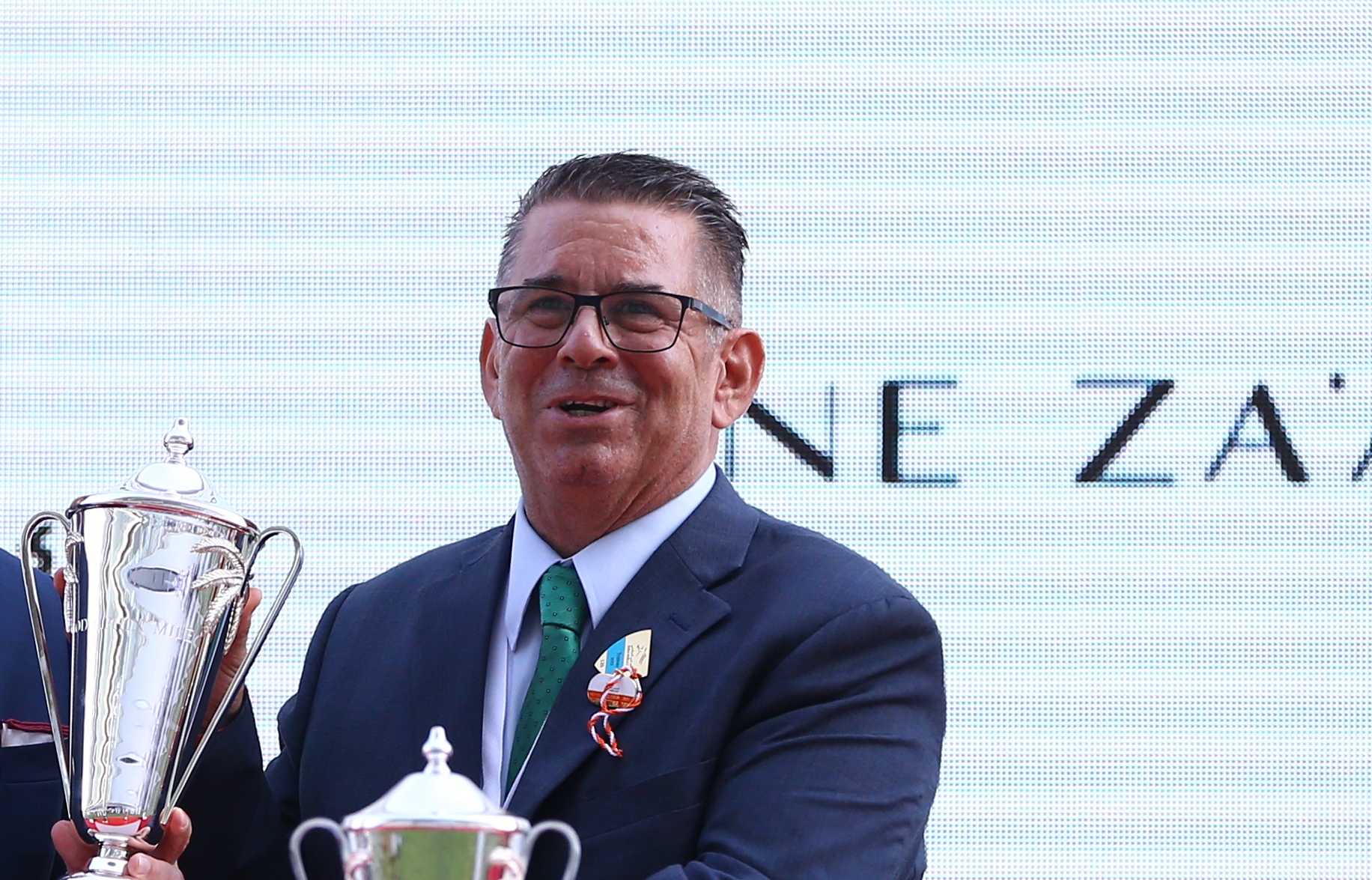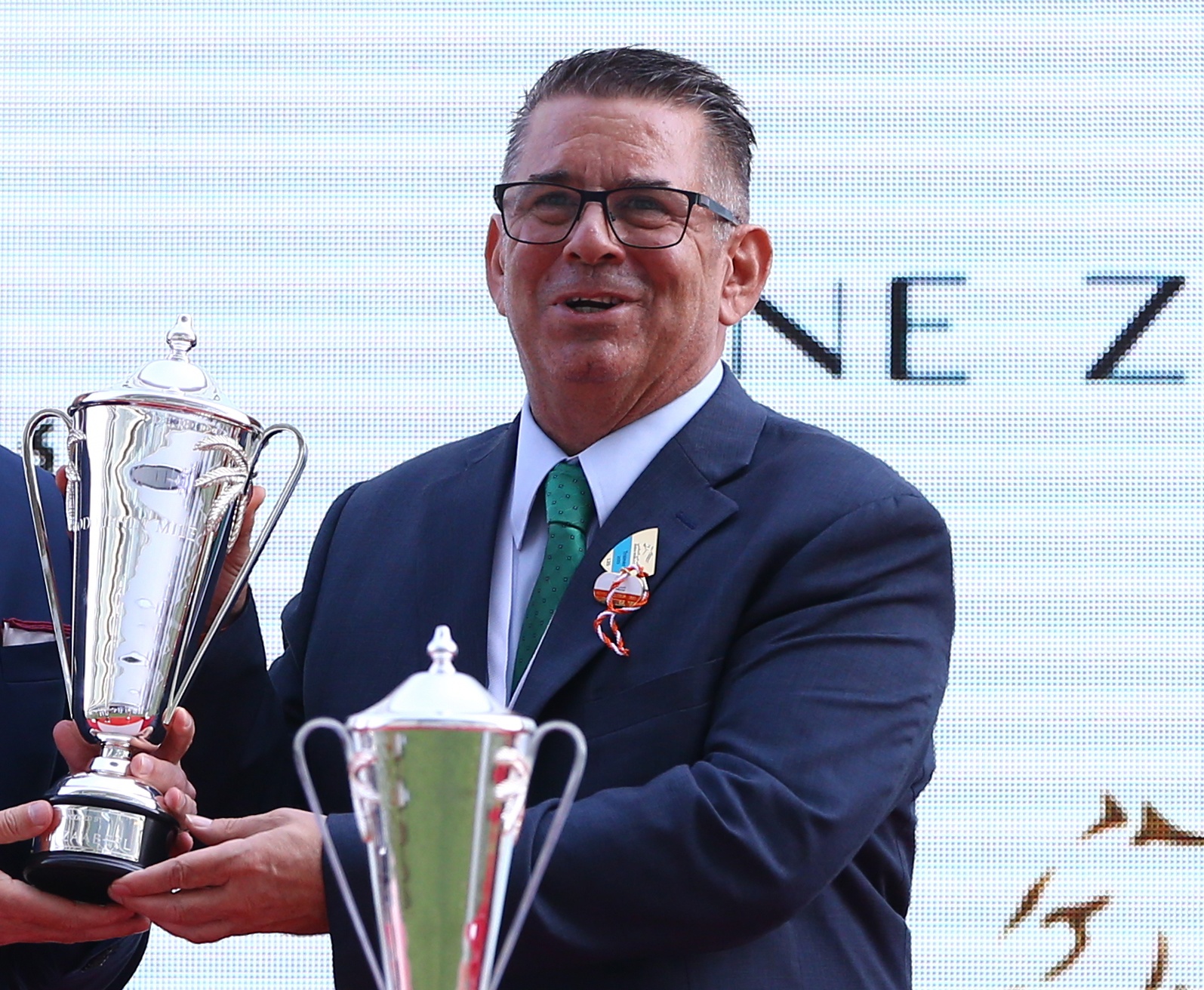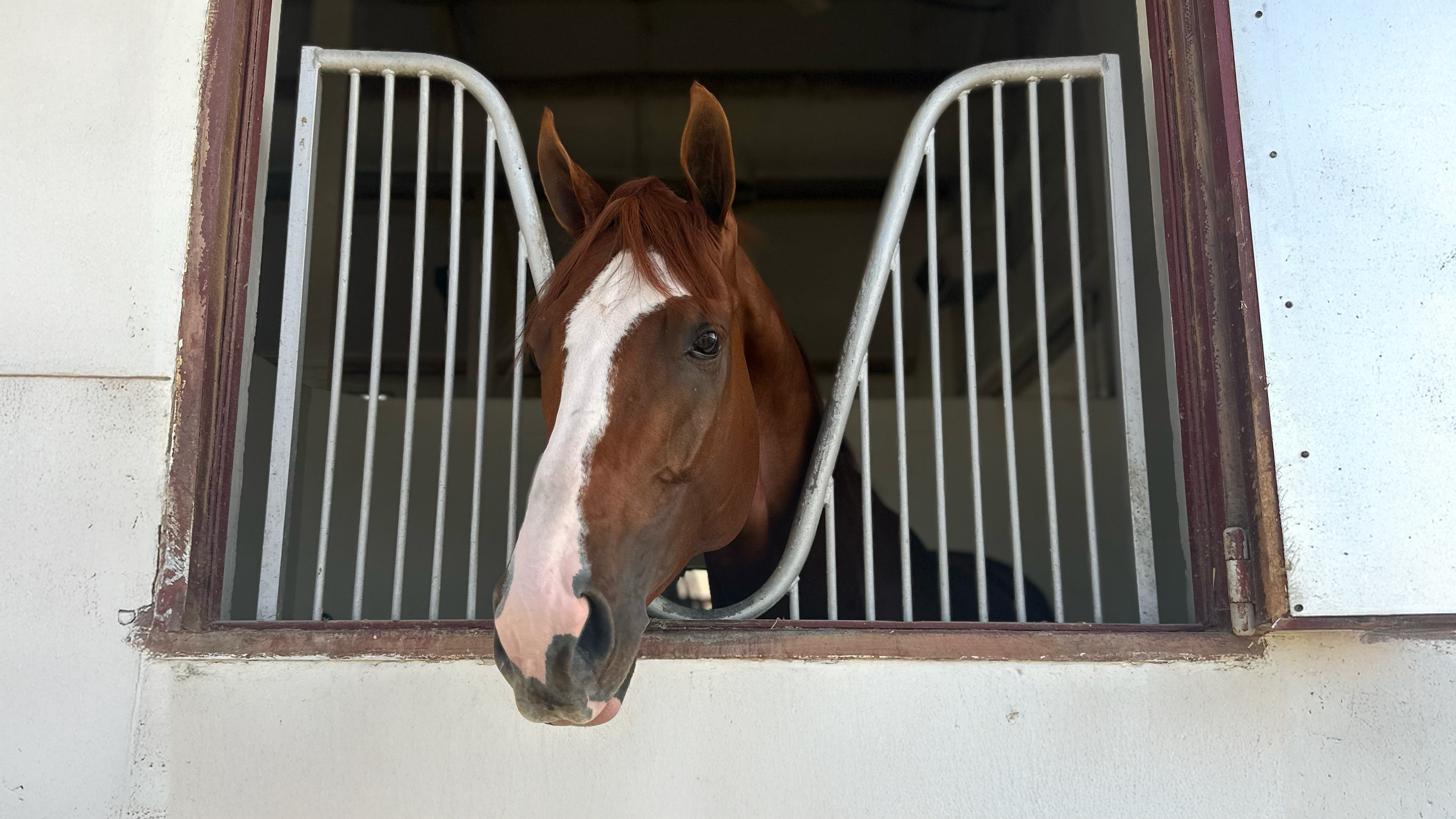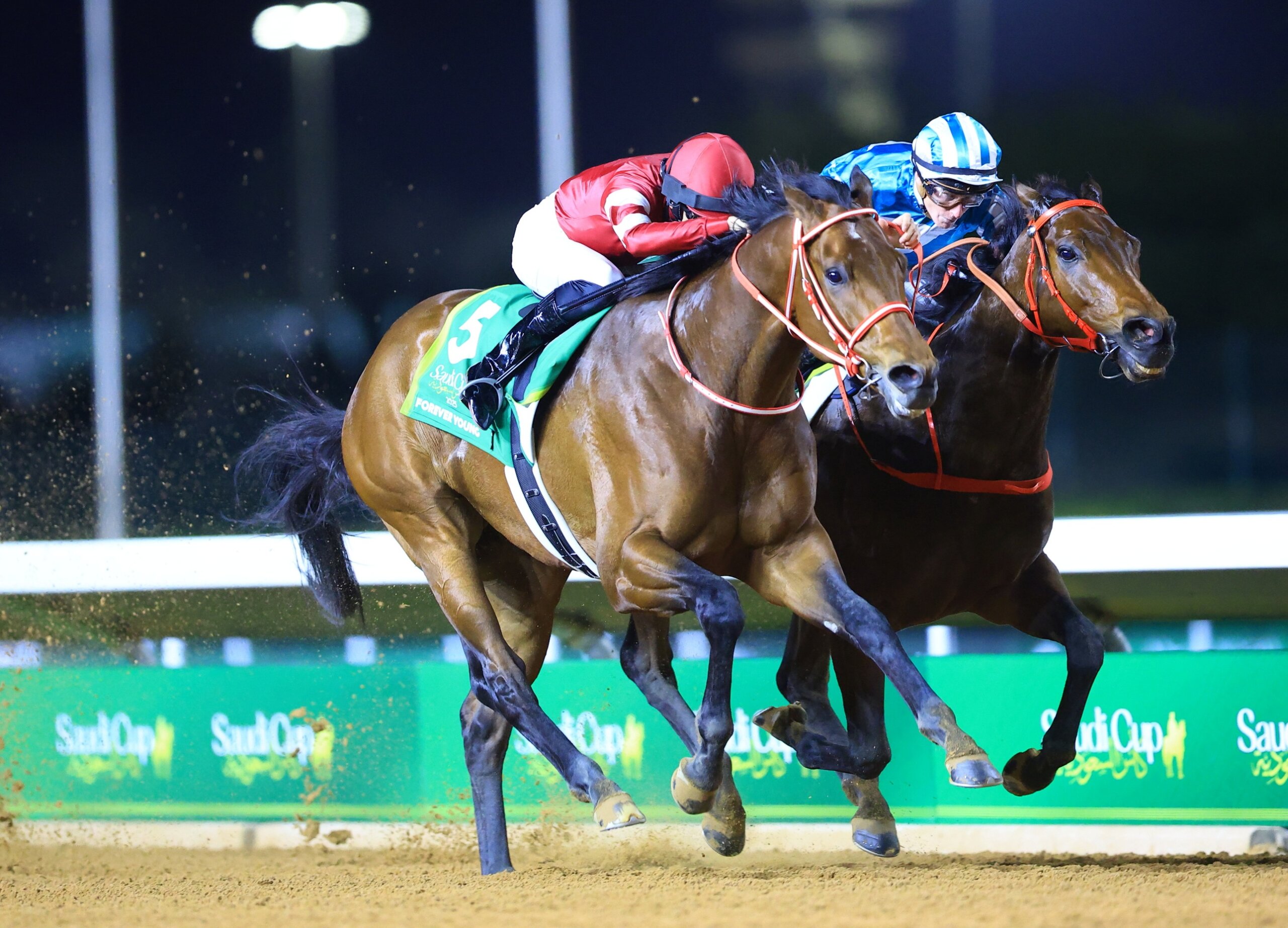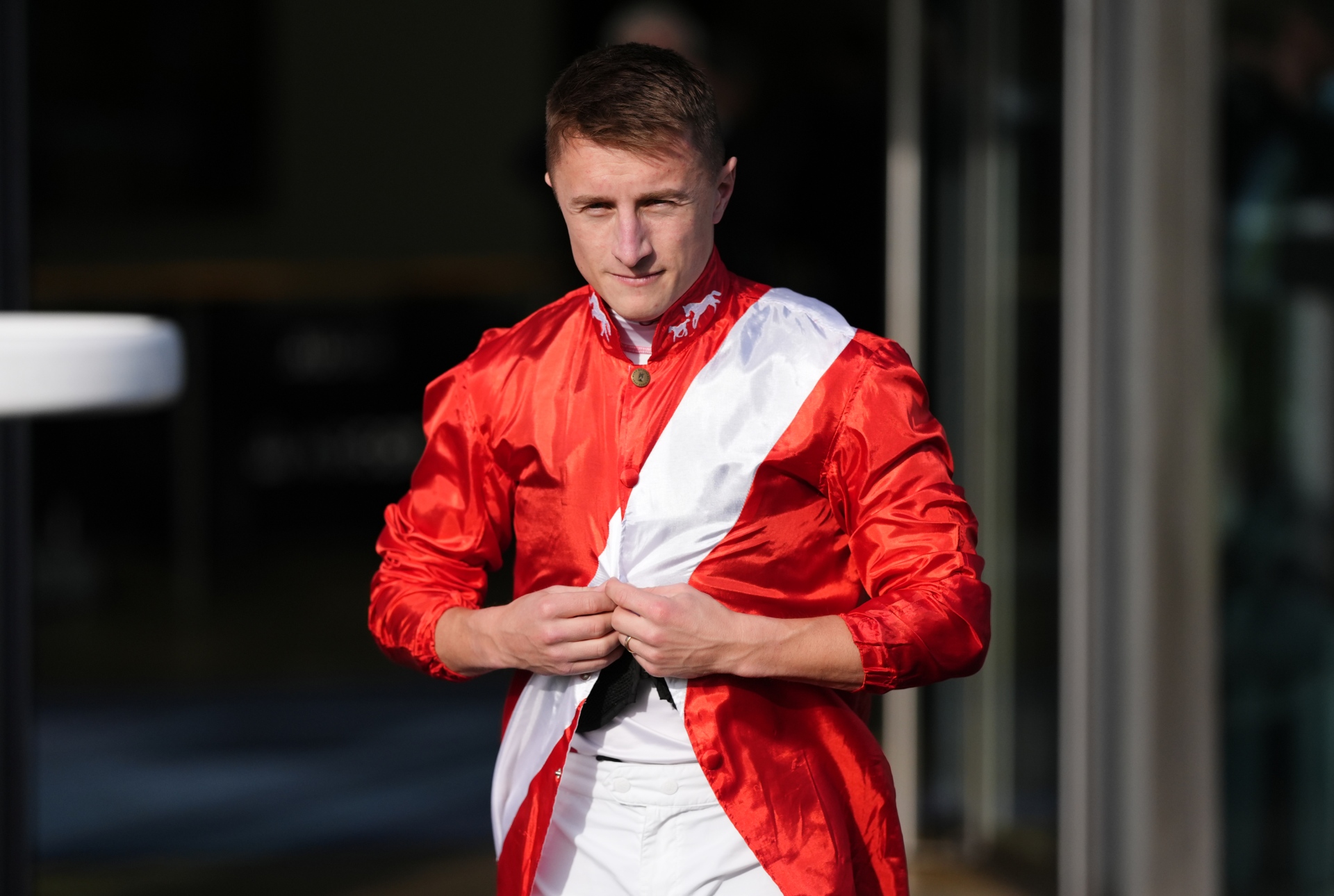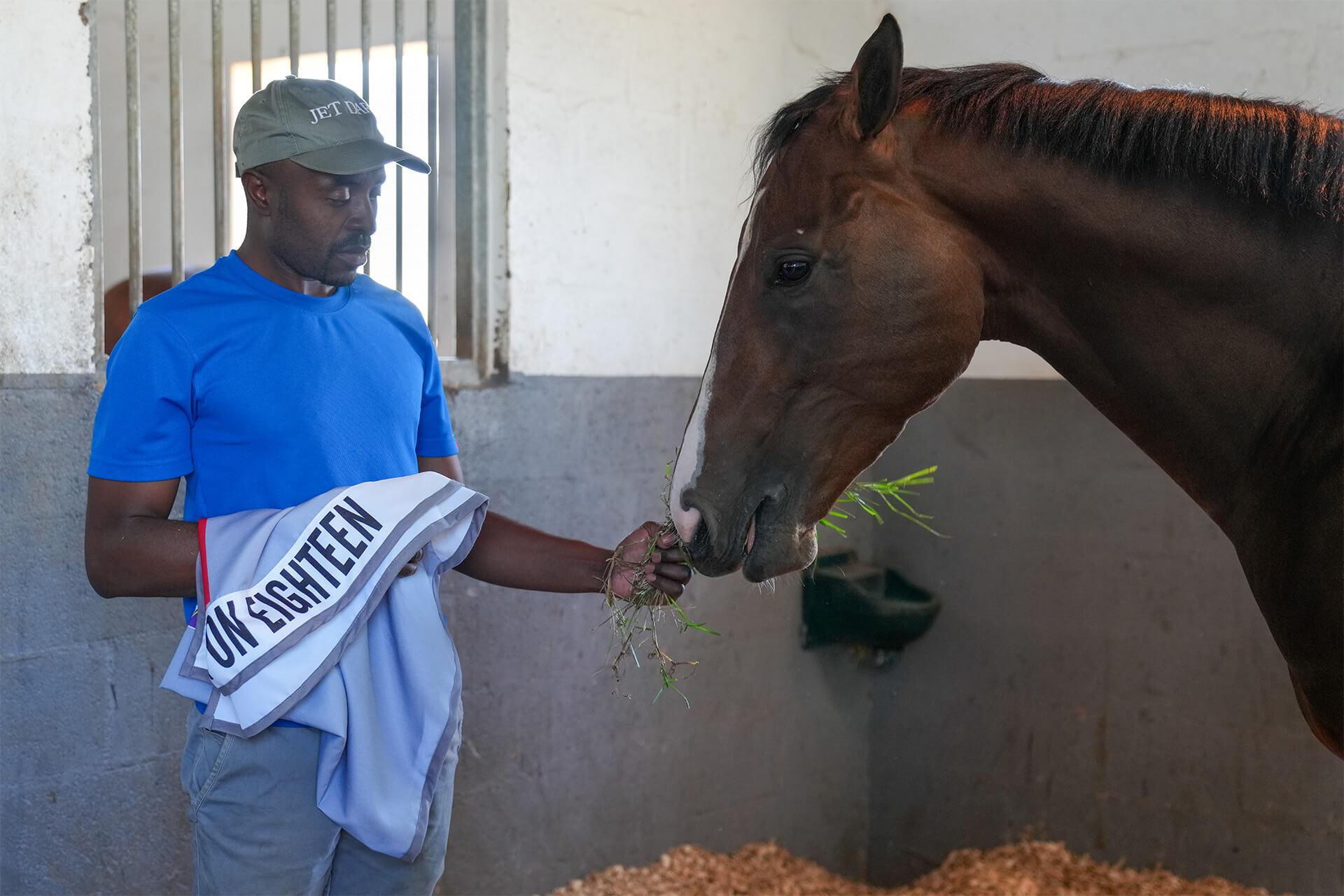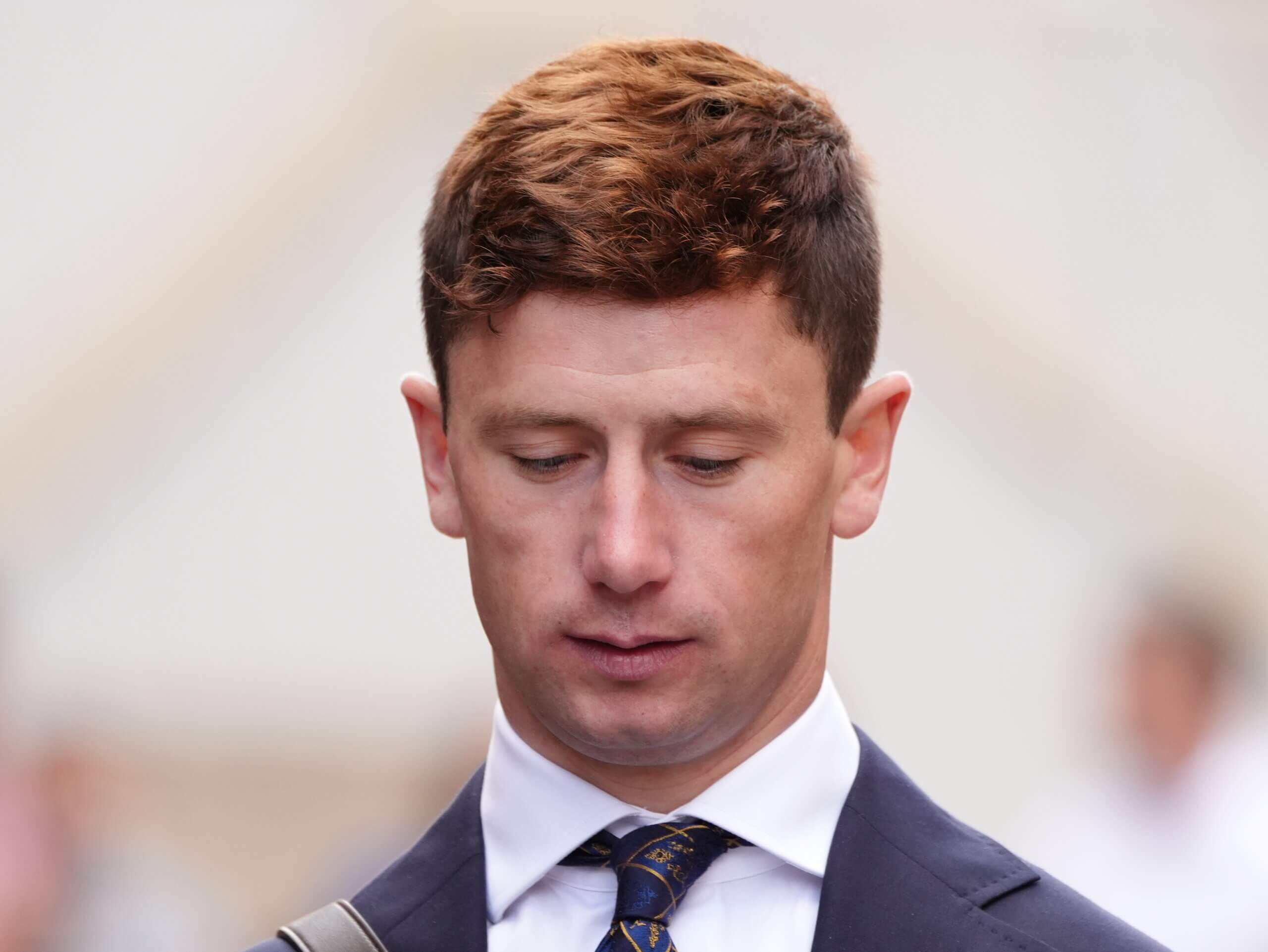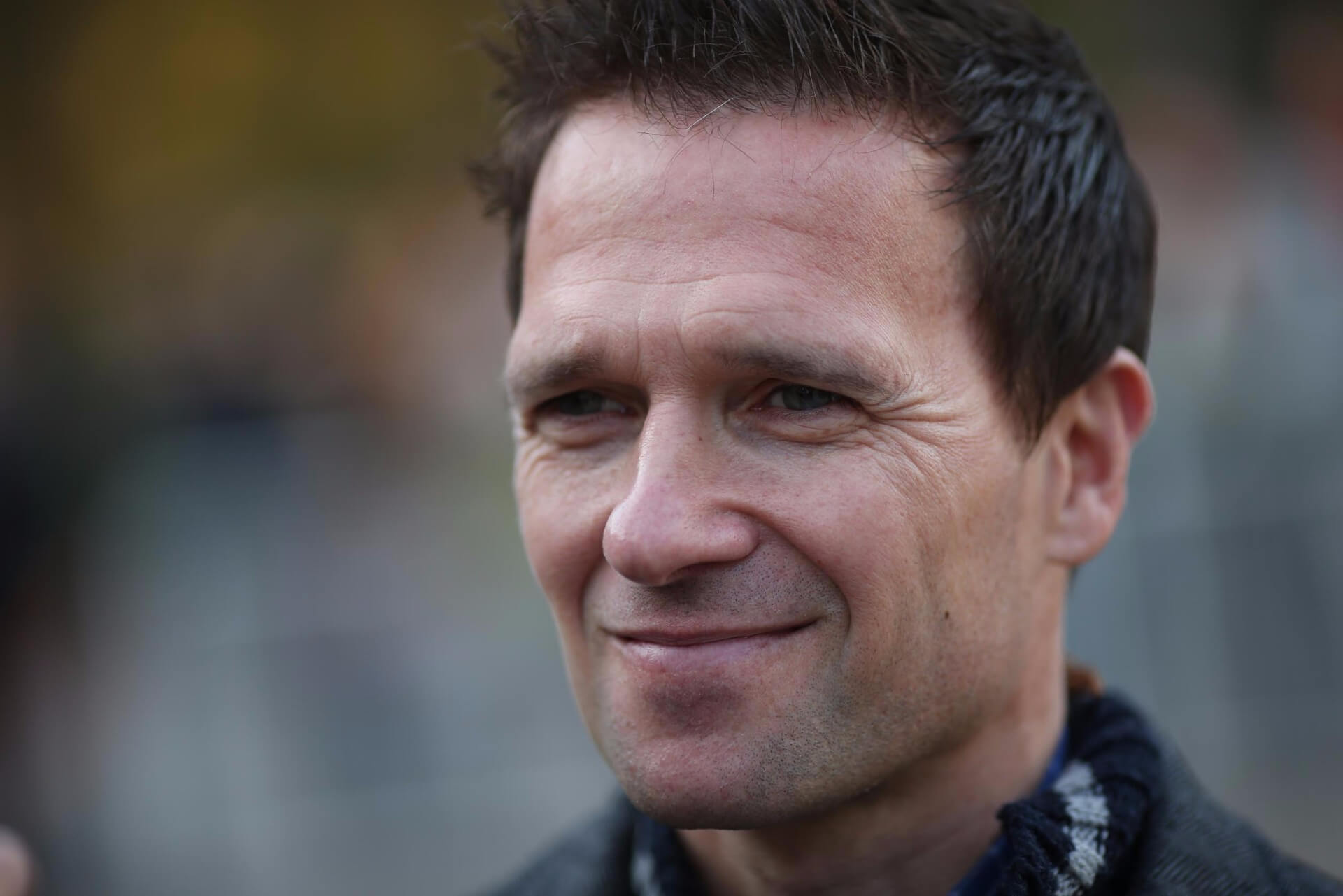International Pioneer Watson In His Element On World Stage
For more than three decades, Doug Watson has called Dubai home. He reflects on a storied career and looks ahead to what might be next.
DOUG WATSON leans back in his office chair and blows a waft of tobacco smoke into the air. All around him are the silver spoils of his 30 years in Dubai, but like the international frontiersman he is, his mind is working over what might be next.
“I have been keeping an eye on Thailand,” he says. “I’ve seen their plans and I think it could be huge there. I’m keen to be involved – maybe as a trainer but not necessarily, maybe just sourcing horses for the industry. It’s going to require a lot of work and it would be great to be part of establishing the industry there.”
There are a number of Thai organisations aiming to fill the gap created by racing’s demise in Singapore and Macau in the past 12 months. Construction is due to start this year on the “Royal Siam Haven” – an integrated resort in Bangkok which will include a racecourse – while other greenfield sites have also been identified as potential hubs for a burgeoning Thai industry.
It is like the foundation days of desert metropolis Dubai, where Watson has been based for more than three decades. An eight-time champion trainer in the United Arab Emirates (UAE), it’s a long way from his childhood homes in New Jersey and Ohio, let alone from the now-closed Arlington Park in Chicago where he first mucked out horse stalls, unpaid.
But those days are long past and Watson feels ever more distant from his old American homeland with each passing year.
“I turn 60 later this year and I realised the other day, I’ve been here more than half of my life,” Watson said. “This is home. I don’t want to go back to America. I’d look at somewhere else like Thailand, for instance, before I’d go back to the States. This is a great place to live.”
If not for a chance meeting in 1993 with Susan Sanderson, an assistant to the Dubai-based Satish Seemar, he might have remained in the American Midwest for his entire career.
“When I first got the offer to come to Dubai, I accepted it straight away but then had to go and find it on a map,” he said. “I had no idea where Dubai was, it wasn’t something you’d learn as a midwestern kid in the 1970s, but I thought it was a bit of a change from Turfway Park, where I was at the time.
“I was only going to come over here for a few months, get some experience before going back to the States. I ended up with Satish for three years and then I joined Kiaran McLaughlin. That was a big moment: he’d been an assistant to one of the greatest of them all, D. Wayne Lukas, and he taught me so much. I never would have been able to train if not for him.”
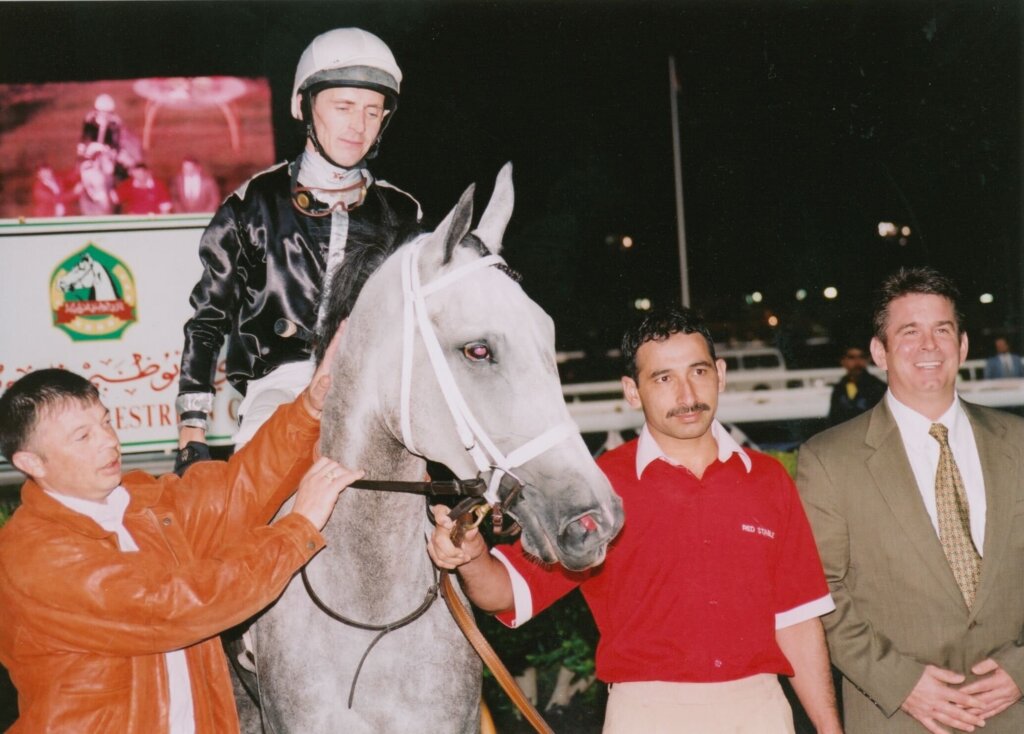
Watson’s arrival as a 28-year-old came at a time of immense change in the UAE racing scene. Sheikh Mohammed bin Rashid al Maktoum, then Dubai’s Crown Prince, was in the process of founding Godolphin and had begun wintering his horses in the emirate. His brother, Sheikh Hamdan, was racing many of his Shadwell horses in the region as well.
“Racing was already big because the royal family was so involved, but the Dubai World Cup really took it to a whole new level,” Watson said. “It’s quite remarkable what it’s become. The Dubai World Cup meeting is the greatest international meeting in the world. You have horses from all parts of the world, it’s the only place where you’ll see horses from Brazil taking on horses from, not just places like Hong Kong and Australia but Sweden or Morocco or even Kazakhstan. It’s second to none. The Breeders’ Cup has a few Europeans and Japanese but nowhere else do you get the range of countries and backgrounds like you do here.
“When I took over from Kiaran in 2003, everyone thought it was heading the other way – and that’s happened a few times since I’ve been training here – but somehow they keep finding a way to make it better. The carnival was a big boost when they introduced that, because you’d get big trainers from all over the world coming here not just for Dubai World Cup night but for months. Now, it’s the whole Middle East from November through April and we’ve been able to adapt with that.”
As much of the northern hemisphere hibernates for winter, the Middle East scene comes alive. Rich races are held in Bahrain in November and Qatar and Saudi Arabia in February, backed by the months-long Dubai World Cup Carnival. Saudi Arabia now races year-round, too, while the Bahrain Turf Series offers incentives to race in the country through the winter.
When the first Dubai World Cup was run and won by Cigar at Nad Al Sheba in 1996, his boss at the time Seemar had no runners on the card and so Watson volunteered to drive the horse ambulance, just to be a part of a historic night in the Middle East.
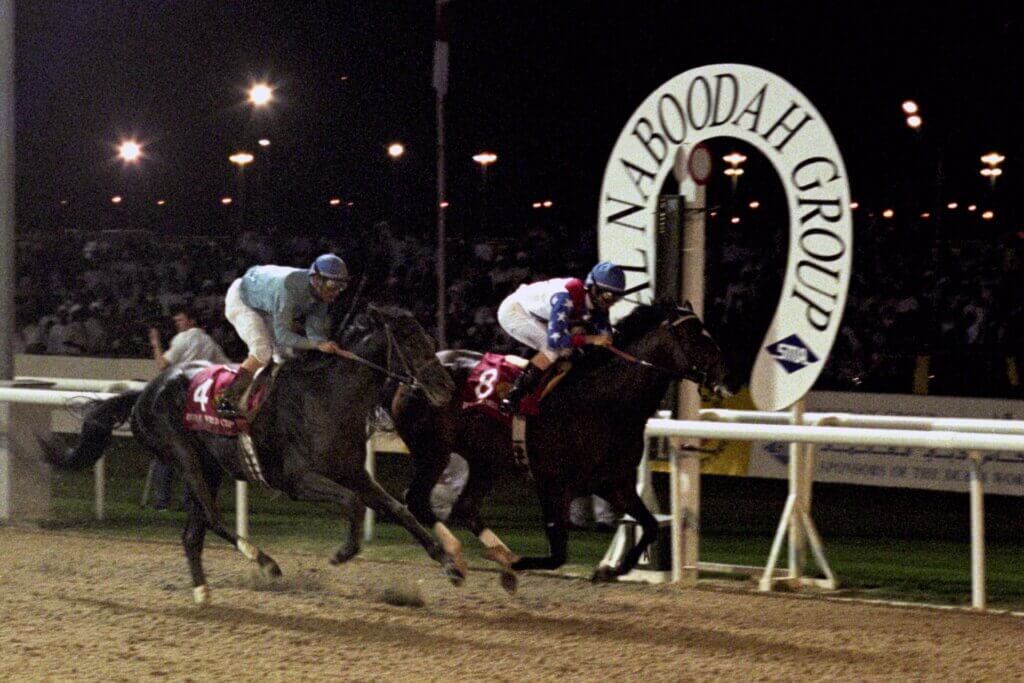
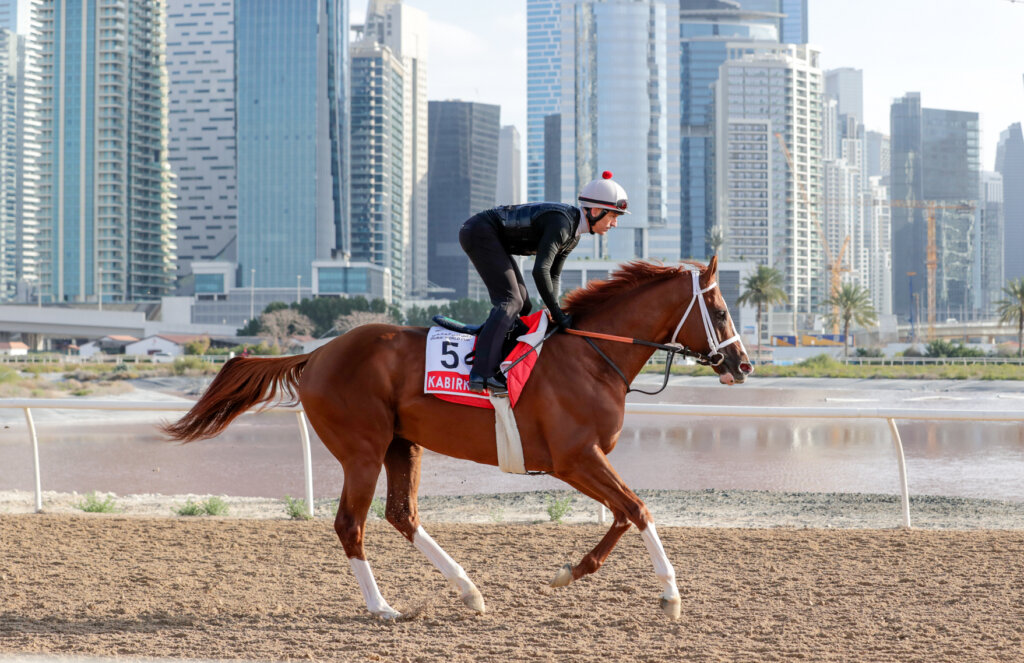
That March night, Watson could never have imagined he would one day saddle up the favourite, but that happened last year when he sent out Kazakhstan’s wonder horse Kabirkhan. The chestnut, the spitting image of his sire, the 2016 Dubai World Cup winner California Chrome, could only finish eighth behind Laurel River – trained by Seemar’s nephew Bhupat – but he is being prepared for another tilt this year.
There are hints of light blue and yellow, the Kazakh national colours, right across Watson’s office – baseball caps, traditional kufis, scarves, flags and a big portrait of the 2024 Al Maktoum Challenge, all gifts from Kabirkhan’s owner Tlek Mukanbetkaliyev.
“I knew nothing at all about Kazakhstan before Kabirkhan came along and I’d definitely never seen racing there,” he said, recalling his butchered attempt to pronounce the country’s name.
“I don’t know if I’ve had a horse that’s attracted as much attention as Kabirkhan. The owners really have embraced racing and we are getting more horses coming from Kazakhstan now. This season, I’ve got a couple that have come straight from Almaty: last year, Kabirkhan had gone to Russia and raced in the Russian Derby, but now they are sending them directly. Kazakh owners bought something like 40 horses at Keeneland in September and we’ve got a handful that have come from both Kazakhstan and Russia so it’s a new pathway, that’s for sure.”
Watson has prepared horses from all parts of the world, including an ultimately failed last-ditch attempt with legendary Hong Kong rogue Pakistan Star. The Group 1 winner was barred by the Emirates Racing Authority after he returned to his ‘Pakistan Stop’ antics in a Listed race at Abu Dhabi in 2021.
“Lovely horse, but he was too clever for me,” Watson said. “He had a couple of niggles but it was great to work with him and it’s fantastic to see him living his life down in Australia.”
A ninth UAE trainers’ championship is not on the horizon this season. Watson has only won seven races so far, well behind the 28 races recorded by premiership leader Michael Costa, but he sees the current term as a time of transition for his barn.
“At our peak, we had more than 120 horses here at Red Stables,” Watson said. “We’re now down to 60. A couple of the bigger owners have left the game, like Al Rashid Stables; Mohammed Khalifa al-Basti got out for a while too. And obviously the passing of His Highness Sheikh Hamdan meant that we didn’t have the volume of Shadwell horses like we did before, we have five now as opposed to 20 to 25 in the past.
“It just means we have to do a few different things to get new owners, like getting some of the Russian and Kazakh owners involved in the yard.”
Watson was one of racing’s pioneers when he landed in Dubai all those years ago, so it’s fitting that he’s making inroads with horses from obscure locations. And if that Thailand thought develops, maybe one day he’ll be chasing Dubai Carnival glory out of Bangkok ∎
